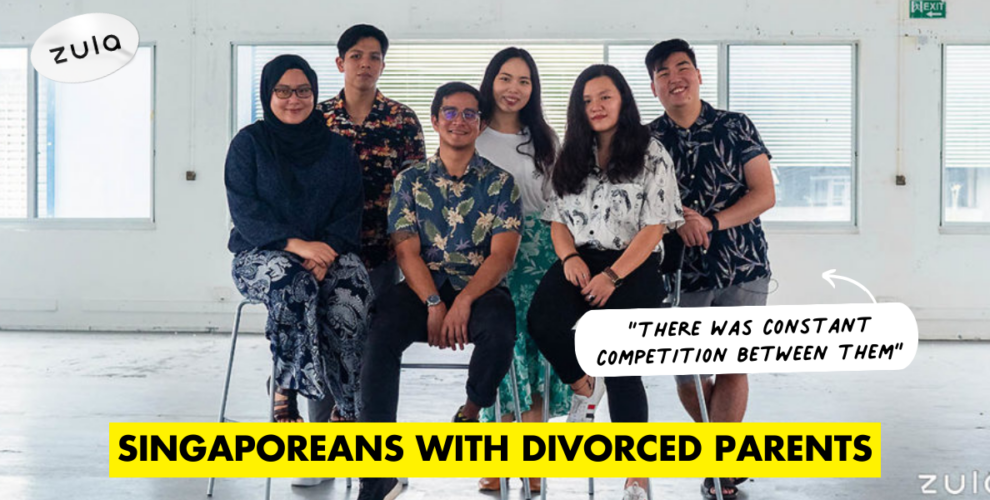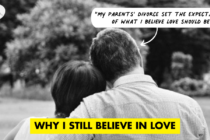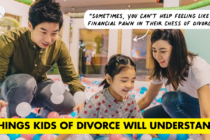Having Divorced Parents
In Singapore, young people are encouraged to apply for a BTO, marry and have a baby, in that order. While this formula works for most, not all unions have a happily ever after. A question we want to know is: what happens to the children post-divorce?
To answer that, we invited 6 individuals with divorced parents to discuss everything from adjusting to their parents’ having new partners to managing a split in their family life.
 From left to right: Nina, Sam, Brendan, Kai Ying, Kylie, Chris
From left to right: Nina, Sam, Brendan, Kai Ying, Kylie, Chris
We have (from left):
Nina, 24, parents divorced when she was 10. Lives with her mum.
Sam, 27, parents divorced when he was 12. Lives with his mum.
Brendan, 26, parents divorced when he was 9/10. Lives with his dad.
Kai Ying, 27, parents divorced when she was 2. Lives alone.
Kylie, 19, parents divorced when she was 6. Lives with her dad.
Chris, 31, parents divorced when he was in lower primary. Lives with his dad.
Contents
- Having Divorced Parents
- On the biggest challenge after parents’ divorce
- On mending parent-child relationships after the divorce
- On parents staying together for their children
- On seeing your parents date and having step-parents
- On attitudes towards marriage, love and weddings
- On people’s reactions when they know you have divorced parents
- On why parents shouldn’t buy their children’s affection
- Being A Child With Divorced Parents In Singapore
On the biggest challenge after parents’ divorce
ZULA: Let’s start with, “My biggest challenge after my parent’s divorce was __________.”
Brendan: It was more about the competition between them. My mum would think my dad is living a really good life and vice versa and I’d just be there, like, “Chill, guys.” And they’re still doing it now.
Kai Ying: I agree with the constant competition. This was especially when I was younger. My parents are both emotionally volatile. So when my mum felt I showed more love and affection to my dad, she’d start to cry and that would induce a lot of guilt.
They’d also say bad things about each other to me. My dad would say, “Your mum left you when you were two, how do you feel about that?”
Kylie: They’ll [turn] you [into] a messenger because you’re on both ends. It was very tiring because you had to please both sides. Ultimately, they’re your parents and you love both of them equally.
Nina: Adjusting to my parents’ different behaviours. When my parents divorced, it was hard for them because they had to adjust to their new lives. Namely, being single parents and there was a lot of grief involved.
After the divorce, my mum went hands-off for a moment. So I had to take over the role of mother and make sure my sister [went] to school on time, prepare breakfast and everything.
Sam: For me, it was fatherly love. I didn’t get to see my dad at home and say, “Pa, I’m home” and stuff. Back in school, you’d ask your friends, “How are you going home?” And they’d be like, “My dad is fetching [me].” Then I’d just stand in one corner and swallow [my sadness] in.
Chris: Mine was my grades in school.
On mending parent-child relationships after the divorce
ZULA: Moving on to our first yes/no question—“I have a good relationship with both my parents.”
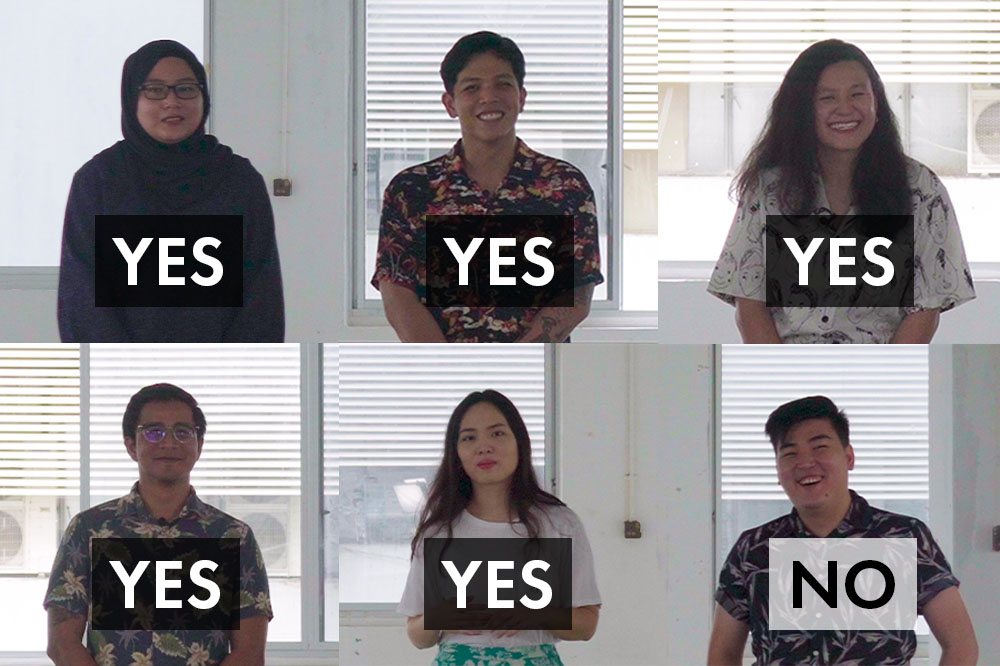 Yes: Nina, Sam, Kylie, Brendan, Kai Ying
Yes: Nina, Sam, Kylie, Brendan, Kai Ying
No: Chris
Sam: My mum, I’ve been with her since the divorce happened. My dad… I don’t think he’s a bad father.
Chris: I never had the idea of how to break the ice with my parents and we just drifted away. And I maybe don’t have the courage to talk to them again.
Kylie: For me, it was only recently that I decided to patch back the relationship. It took a lot of effort to start talking to and forgiving my mum. I couldn’t live with the idea of not having a good relationship with both my parents. None of them were willing to open up, so I realised I had to be the bigger person.
Kai Ying: I’ve not always had a good relationship with both my parents. There was one incident that really struck home. It was when I was a teenager and I always talked back to my dad. My dad and I used to get into shouting matches.
So he said “stop” and told me to stay where I was. He went into his room, stayed there for half an hour and then came back out. When he came out, he just said, “Okay, you can go back to your room.”
Days later, I realised he probably went into the room to cry because he couldn’t do it in front of me. So that’s when I realised, “Okay I need to stop being a bitch to my parents.” I realised they’re humans too and they’re just trying their best.
Also read:
16 Things Only Kids Of Divorce Will Understand, Like Learning Independence The Hard Way
On parents staying together for their children
Kai Ying: Do you think that parents should stay together for their kids?
Brendan: I think they should stay in communication, not necessarily stay together.
Kylie: I think I used to see divorce as a bad thing. But as I grew up, I saw it as a solution. Because if two people really cannot live together, then why have that stress, anger and unhappiness under one roof? It’s a way of moving on too. I’d rather have two happy [parents].
Sam: Ultimately, we are the reason they kinda don’t want to divorce what. I don’t want to go home to my mum and dad quarrelling. So you somehow have to tell them that you feel okay, so that they feel okay too.
Chris: Actually, there’s a part of me that still thinks divorce is bad. I know I should think of it as neutral or even a bit positive because it helps people get out of bad situations. But the idea of soulmates [and people staying together forever] right, although it’s not realistic, it’s just how I was brought up lor.
On seeing your parents date and having step-parents
ZULA: Are you guys okay with your parents dating other people?
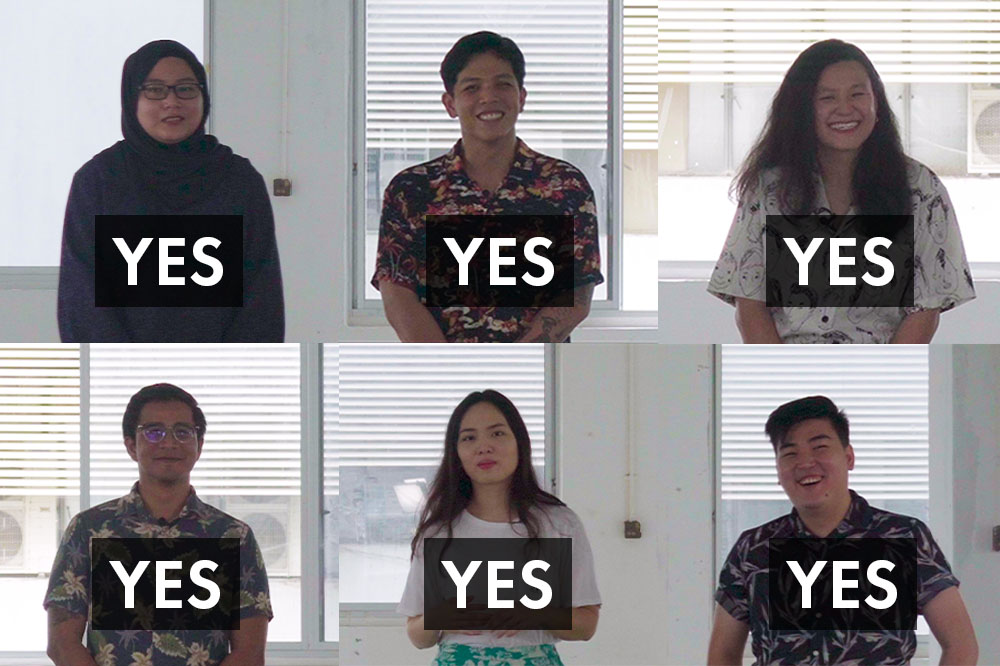 Yes: All
Yes: All
Kai Ying: When I was younger, it was a no, and I’d always antagonise their partners. I remember when my mum was trying to introduce me to my future step-dad, I threw a huge tantrum and I sat on the floor outside my condo for a good half an hour.
But my step-dad, who was not married to my mum at that point of time, was extremely kind. He just stood there, he didn’t complain or scold me. It’s only when I look back at that incident today that I realise what an amazing man he is.
Brendan: I completely support my parents pursuing happiness even if it’s finding another partner, I will still be very honest about my opinions on the matter.
Kylie: Both my parents have [been] remarried for almost 10 years now. I’m quite on good terms with my step-mum and we’ve lived together for 8 years now. And she really treats me like her own. I wouldn’t be here without her.
On the other hand, with my mum’s side, her husband, uhm… We had our conflicts when I was younger, because it felt like he took all her attention away.
Kai Ying: I agree. My step-mum and I did not always have a civil relationship because I think this attention thing is very real. My dad loves us a lot obviously, but he also loves her.
There would be some quarrels and shouting matches when she first moved in with us. But through all these disagreements, she was always there to fetch me to school in the morning, she would make breakfast for me in the morning.
Kylie: I think that’s where you kind of accept it and you’re like, “Okay, actually this person is a very nice person.”
Kai Ying: Actually Nina, I’m curious. You mentioned that your mother is going through another divorce. How do you feel about that?
Nina: She remarried this man. This man had anger management problems, so he was very abusive towards me, especially. They got married when I was a teenager and I was an easy target because he could just say, “Oh I beat her because she had issues like teenage rage.”
So when my mum told me that, “Hey, I’m getting a second divorce.” I went into my room and did a little dance and celebrated a bit.
Sam: I think my mum didn’t see it as a need to have someone accompany her anymore. Because after the divorce, she gave all her attention to [her children]. I was like, “Why don’t you go find yourself a ‘golden turtle’?” I don’t know, you put it in Chinese, it’s someone rich.
*everyone laughs* I mean I’m just pulling a joke on her lah. But I think she deserves it at [her] age already. But if she doesn’t want it then okay lah, if she’s happy, I’m happy.
On attitudes towards marriage, love and weddings
ZULA: The next yes/no question is—“I still believe in marriage.”
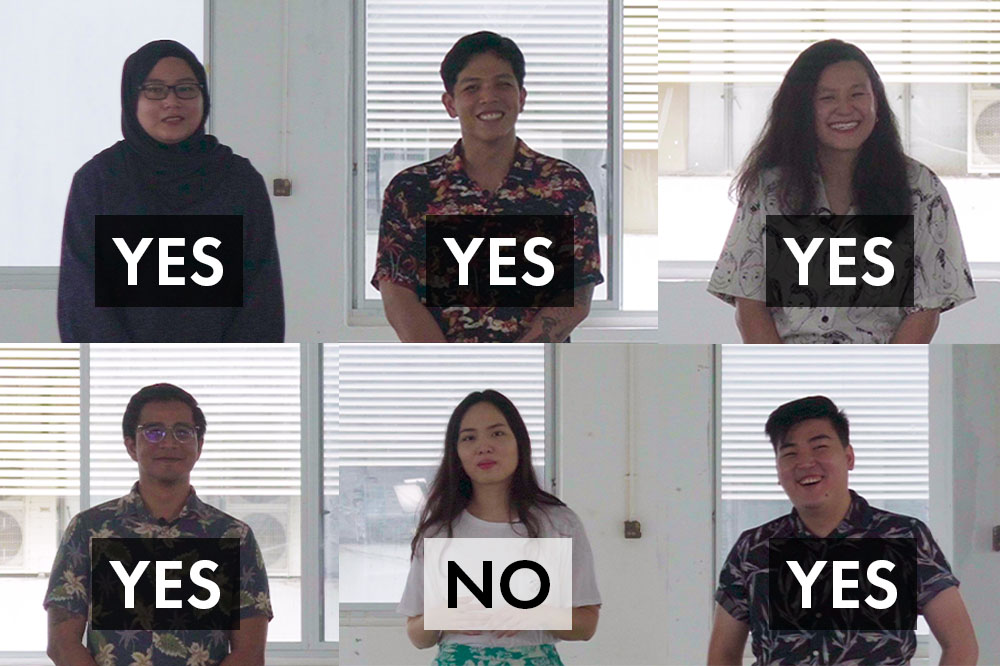 Yes: Nina, Sam, Kylie, Brendan, Chris
Yes: Nina, Sam, Kylie, Brendan, Chris
No: Kai Ying
Kai Ying: I think marriage is a social construct, and it’s just a piece of paper. I feel like if you’re committed to one another, you don’t need a piece of paper to tell you that you need to stay together. And even then, there’s no promise that you will always be together.
The view I have is not something that the majority of people have. Talking about marriage with my previous partners has always been very awkward. ‘Cause to me, it’s not important, but to them, especially if they’re older than me, it’s something they want to do as the next milestone in their lives.
However, in Singapore, it’s very important to get married. Because if not, you can’t get a lot of privileges. So if my future partner wants to do it, it’s okay, I’m not vehemently against it.
Kylie: I still do believe in marriage because I don’t want what happened to my parents to affect me, because that’s what happened to them. In relationships, it makes me motivated to fix a problem rather than to find a solution, which is divorce.
In fact, I feel that I learnt from their mistakes. Don’t marry too young, find the right person as well.
Brendan: What the divorce taught me was people shouldn’t get married because they feel like they’re in love. Because most people tend to forget that there’s a lot of planning to be included, a lot of thought to be put in.
Sam: I second that whole statement because I feel that on that day you take that vow, when you put that ring on, it’s a commitment already. If you cannot, don’t do it.
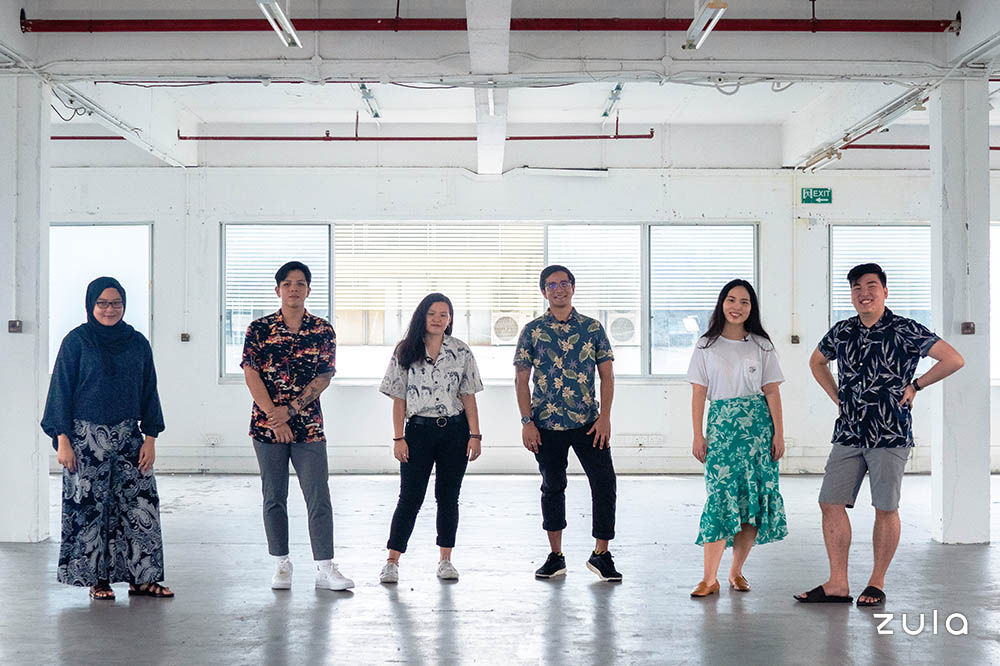
Chris: I’ve always approached marriage with a very childish wonder. I’ve never been in a relationship and looking back, it kind of makes sense. I’ve seen what happens when a marriage ends and because of that, it’s a bit hard to pick somebody and want to let the person in.
The person needs to be perfect, because if the person is not perfect, we know how it ends. And that’s the thought that haunts me.
Nina: Yeah, I enter relationships with a bit of paranoia and fear. There’s a saying that daughters end up marrying someone like their fathers. That’s my biggest fear, to end up with someone like my father.
Sam: In my past relationships, I thought love was bullshit. Not because of my relationship, but because of what happened before [with my parents]. I just feel like there’s this void in me that I can’t fill up.
Kai Ying: I can completely understand what you mean by the void inside. However, I never understood whether that was a human thing or because I’m a child of divorce.
Sam: I want to get married but I don’t want to have a wedding. I want to just sign the paper and get out of Singapore and enjoy [life with my wife].
Kai Ying: Actually, I completely agree with Sam. The idea of my parents coming together and seeing each other in the flesh is a complete nightmare.
Chris: But I’m sure they’ll be happy for you lah.
Kai Ying: They’ll be happy for me but they will not be happy with each other.
On people’s reactions when they know you have divorced parents
ZULA: Last question—Do you feel like you’ve been disadvantaged having divorced parents?
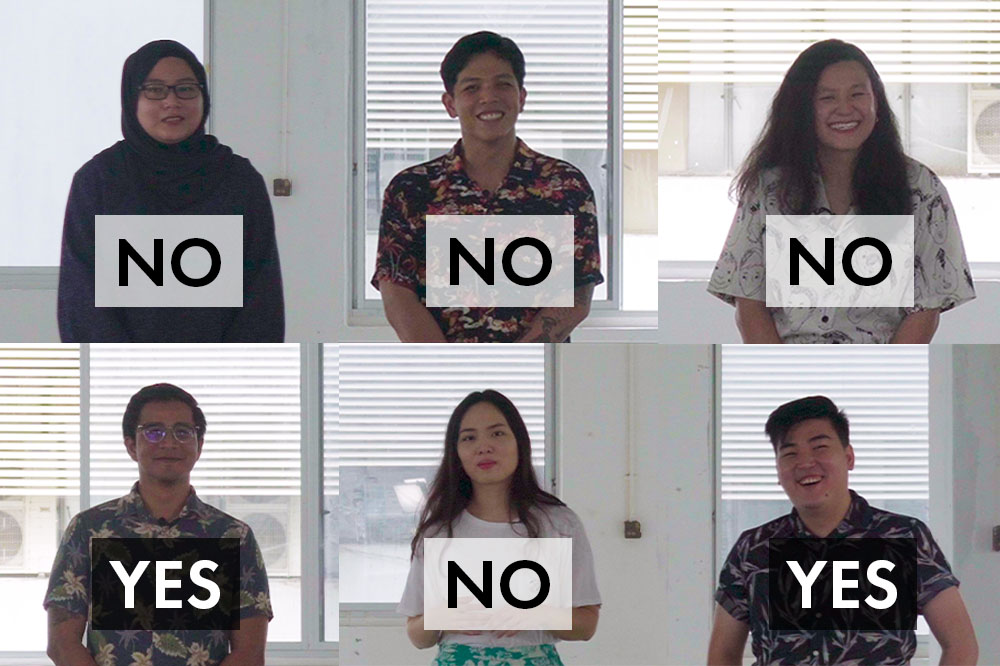 Yes: Brendan, Chris
Yes: Brendan, Chris
No: Nina, Sam, Kylie, Kai Ying
Chris: I feel like if my family was whole for my entire life, I would have had better emotional growth. But the way it happened, the very cold way that it was never communicated to me, stunted how I perceive relationships from a very young age.
I actually found out about my parents’ divorce when my best friend asked me, “Chris, are you okay? I heard that your parents divorced.” I had no idea what that meant, I had to go home to look it up.
Kai Ying: As a child of divorce, I don’t think there are [many] disadvantages, especially because I was born in a financially privileged family.
Kylie: It’s definitely difficult as a parent, but as a child of it, I don’t think there’s a disadvantage to it. Yeah, there might be some emotional baggage but other than that, you still have a shelter over your head. People still care, if not care even more because they might be afraid that you might have a lacking parent figure.
Kai Ying: You know how when you go to school, and then you don’t do your homework? Then the teacher asks, “Why you never do?” Then I’ll say, “Oh, my parents are divorced.”
*Everyone laughs, Chris is very shocked*
You don’t even need to explain. You can just say, “My parents are divorced.” And then they’ll be like, “Okay, okay. It’s okay.” Okay, I’m sorry to my teachers who are watching this.
I stopped doing that in my teenage years when I realised I was victimising myself by saying I’m a child of divorce. I should be able to stand on my two feet and prove myself with my own capabilities.
Sam: Honestly, I didn’t play that ‘broken’ family card ever. I don’t want my friends to judge me and I don’t want people to pity me because I want to be level with them. Whatever they have, I’m sure I can have it too.
I’m not lacking in anything. I’m not from a broken family, although my parents are divorced. There’s nothing wrong with being a single parent.
Brendan: I feel like it’s disadvantageous mainly ’cause of a split in resources. In addition to that, there’s a little bit of stigma, in terms of the older generation. ’Cause like, “Oh you’re [a] divorce kid.” If something goes wrong, it’s like, “Oh it’s a divorce kid problem.”
And then there’s the positive bias as well. “Oh you’re a divorce kid, how can I help you?” It removes normalisation from the entirety of the [divorce] process lah.
Kai Ying: It has been 25 years since my parents divorced. So I have seen how the perception of divorce has changed. When I was a kid, being a child of divorce was a huge deal. I can do whatever I want because I’m a child of divorce. But now if I use this sentence, nobody is going to give a shit.
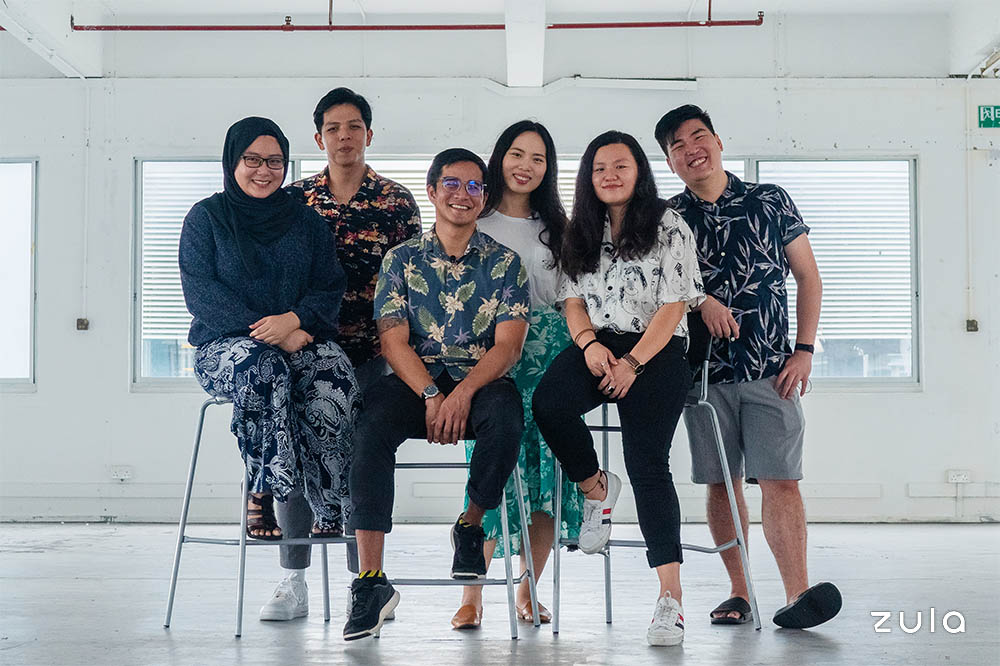
On why parents shouldn’t buy their children’s affection
Nina: When I was 12, 13 years old, I’d tell my mum I want something. If I wanted something else, and I had already maxed out my mum’s budget, I’d go to my father and he’d get it for me “as a treat”.
Chris: Instead of showing affection, my father would just buy affection. *general sounds of agreement* Oh! Everybody gets that?
Kylie: I think why the parents did that is because they’re compensating as well. And also, it felt a lot easier, rather than opening up. It’s like that short-lived happiness where you see your kid happy for a while.
Nina: Looking back, I didn’t really need the things, the luxuries. I just needed my parents to be there.
Sam: Yeah, like, for example, if the kids are losing that particular part [of being raised in a two-parent household], right? The parents really have to make the effort to put it back. Because if not, it will really be an anxiety issue or trauma.
Nina: Hopefully, the next generation of parents will be more emotionally available and aware of the needs of their children. So who knows, maybe we’ll see some changes in the parenting style of divorced parents.
Being A Child With Divorced Parents In Singapore
Being caught between both parents, grappling with the idea that their family is ‘broken’ and growing up estranged from either their dad or mum are common issues children of divorce deal with. If unresolved, the emotional turmoil caused by these occurrences can cause deep-seated trauma.
But our six panellists have demonstrated that with time, understanding and empathy, growing up with alternative family structures is not definitively bad. Hopefully, this article has shed light on what growing up with divorced parents is like in Singapore.
Watch the full video here:
Responses have been edited for grammar and clarity.
This article was first published on 29 January 2020 and last updated on 27 January 2024.
Also read:
How This Single Parent Found The Strength To Raise 4 Kids Alone

